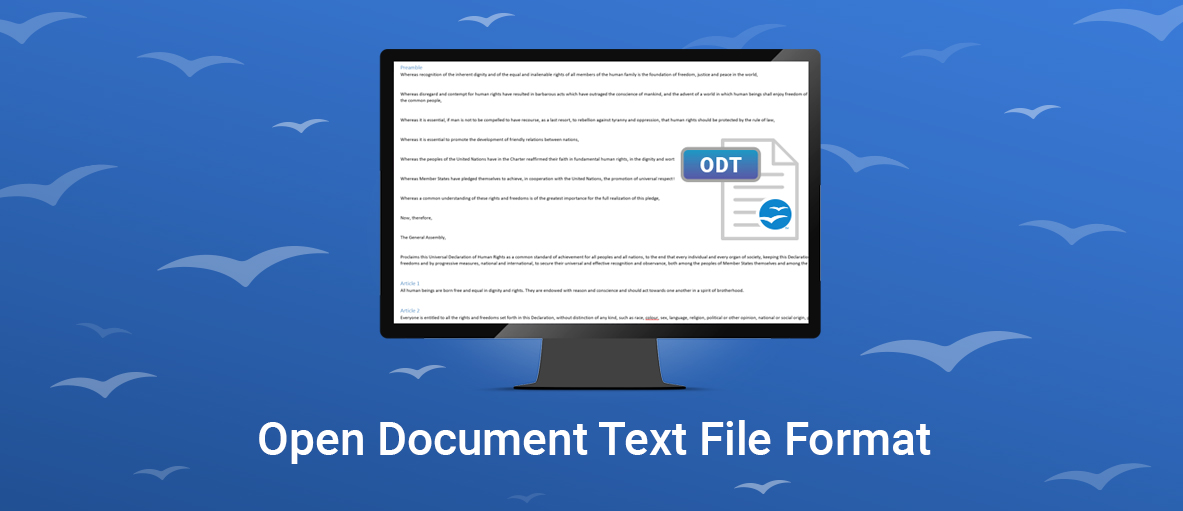After Open Office XML in 2017, GdPicture.NET now supports .odt format (since version 14.1.0).
As you will see in today’s article, support for .odt files can be an essential element for those who work with government agencies and public administrations.
OpenDocument and .odt
The ODT file format (.odt) is one of OpenDocument file formats, for word processing (text) documents.
The Open Document Format for Office Applications (ODF), also known as OpenDocument, is a ZIP-compressed XML-based file format for spreadsheets, charts, presentations, and word processing documents. It was developed with the aim of providing an open, XML-based file format specification for office applications.
A technical committee developed the standard in the Organization for the Advancement of Structured Information Standards (OASIS) consortium. It was based on the Sun Microsystems specification for OpenOffice.org XML, the default format for OpenOffice.org, which had been specifically intended « to provide an open standard for office documents. »
In addition to being an OASIS standard, it was published as an ISO/IEC international standard:
ISO/IEC 26300 – Open Document Format for Office Applications (OpenDocument).
The first version of the standard was released in 2006 and revised in 2015.
Benefits and users
The .odt format is very popular for individuals and organizations that don’t want or cannot, for licensing, pricing, or even ideological reasons (open-source vs. proprietary format), use Microsoft Word.
The Library of Congress (LOC) is altogether the research library for the United States Congress, the national library of the United States, and its oldest federal cultural institution. Its Recommended Formats Statement (RFS) 2015-2016 includes ODF (ISO/IEC 26300) as an acceptable format for textual works in digital form, and .odt is found in their list of format descriptions for text.
According to the LOC website:
A number of government bodies have adopted the ODF family of formats as mandatory or recommended for documents which must be editable to support collaboration within the government or between the government and the public or other entities.
Read the full article here
